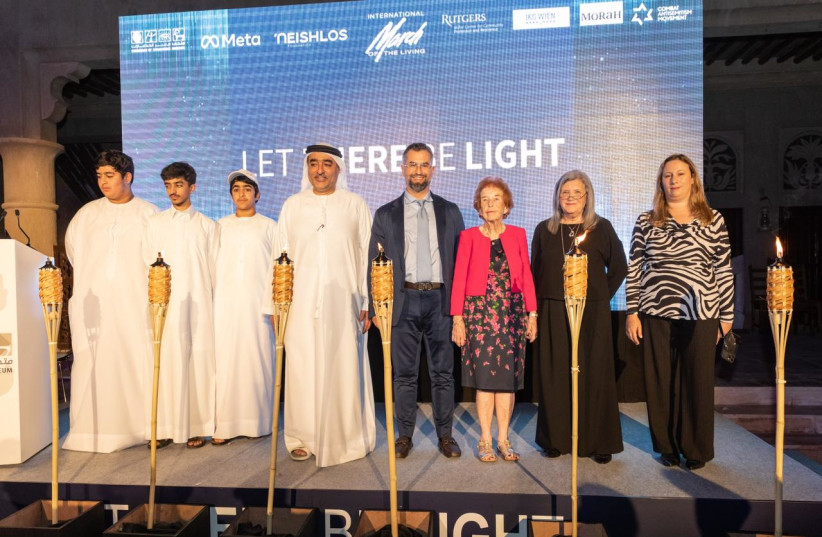Let us be clear: The Gulf region and the Arab world do not bear culpability for the infamy of the Nazi Holocaust against the Jews. That responsibility rests solely on the Nazis, their allies, cohorts, partners, and collaborators during the horrific days of World War II.
But there is an important place for Holocaust commemoration in the Muslim world because the lessons of this historically unique atrocity remain universal. No group, in no place, and for no reason, should be threatened or discriminated against based on their race or religion, their ethnicity or national origin, let alone targeted for extermination.
Changing Holocaust education in the Arab world
And that is why on the eve of the annual International Holocaust Remembrance Day, we should praise the United Arab Emirates for pioneering the inclusion of Holocaust education in its curriculum for primary and secondary schools – a historic first for the region.
The UAE’s step is long overdue. For too long, there has been little to no dialogue in the Muslim world with organizations, including Yad Vashem and other institutions dedicated to preserving the memory of the Holocaust, and making sure any form of genocide never occurs again.
Until recently, a gap in historical awareness had been pervasive throughout the Middle East. And ignorance has consequences, as we tragically have seen more recent genocides, including those against Christians and Yazidis by the self-proclaimed Islamic State just a few years ago.

Muslims, too, have suffered the unconscionable, including the Rohingya in Myanmar. Their terrible ordeal is a reminder that Muslims have as much at stake as Jews or anyone else in advancing tolerance, coexistence and social harmony.
The UAE action received some criticism online and from political commentators, as might be expected, but deserves the opposite. It is critical that we all understand the crimes and tragedies of history to learn from them and prevent such events from reoccurring.
The point of historical remembrance is that we move past ancient enmity and distrust, fully understand the pain and emotional context in which different groups see the world, and search for meaningful ways to bridge divides. This does not happen overnight, but it is happening. The Abraham Accords, and their significant contributions to peace in their short existence, reflect this same noble objective.
Morocco and Bahrain are also making contributions. Education ministers in both countries have informed me that the Arabic translation of the book I co-wrote with Imam Shamsi Ali, Sons of Abraham: A Candid Conversation about the Issues that Divide and Unite Jews and Muslims, will be introduced in their curricula – specifically pertaining to its chapter on Holocaust awareness. The Sons of Abraham Arabic translation will be released shortly by Motivate Publishing House under the aegis of the UAE’s ruler, Sheikh Mohammed bin Zayed.
There are positives in this remembrance, too. Last month, President Isaac Herzog praised the late Moroccan King Mohammed V for granting Jews sanctuary during World War II. Many other Muslims similarly acted righteously, at personal risk.
Progress in historical remembrance has not been limited to signatories of the Abraham Accords. We should recognize Saudi Arabia, too, where the head of the Muslim World League, Sheikh Dr. Mohammed al-Issa, led a historic Muslim delegation to Auschwitz in 2020 and declared Holocaust denialism a crime against Islam. It is no coincidence that these events coincided with successful efforts by Saudi authorities to eliminate antisemitic content from textbooks and other educational materials.
More must be done, by everyone, to deeply engage with the unique emotional contexts with which people in the Middle East and beyond live and coexist. For if we are to ultimately advance a sustainable peace for everyone in the region, it will not be through the negation of their historical experiences and narratives. It will start with education and awareness, by acknowledging our starting points, and finding ways to bring healing and reconciliation to all.
The writer is president of the Foundation for Ethnic Understanding and a noted adviser to many Gulf states.
